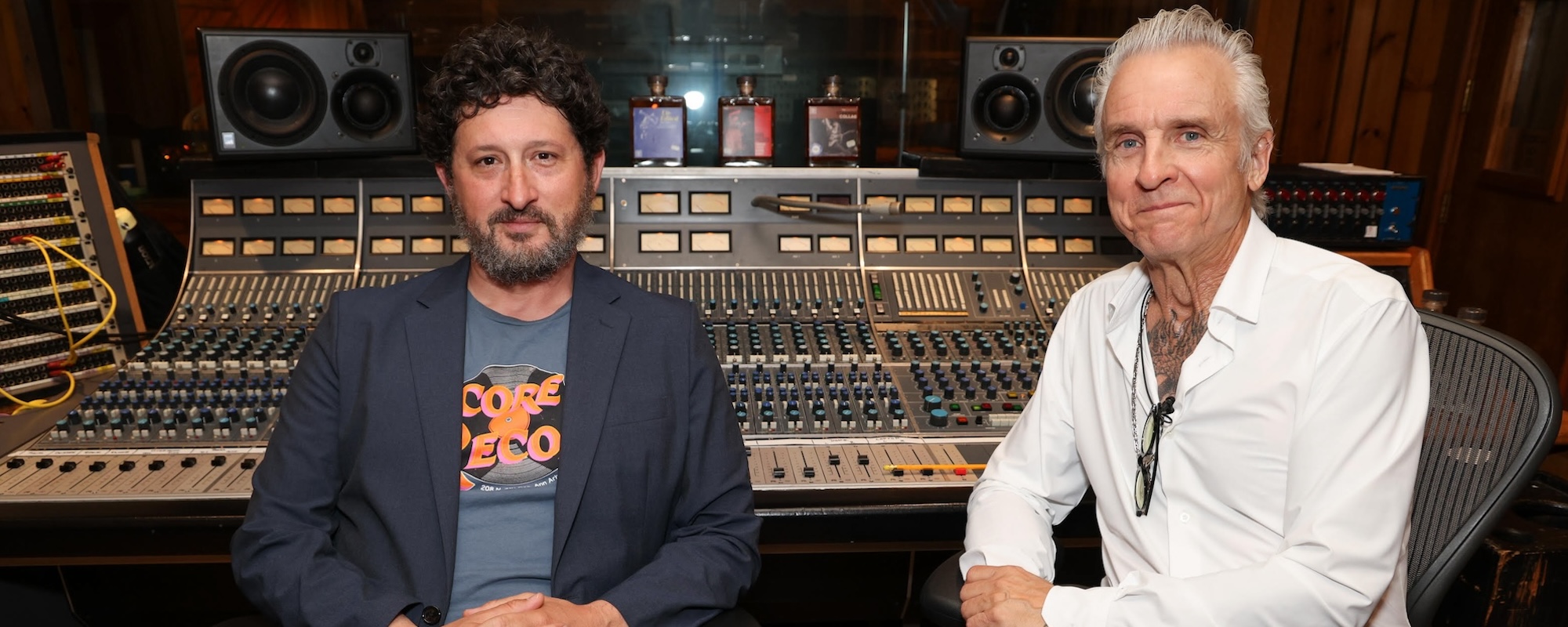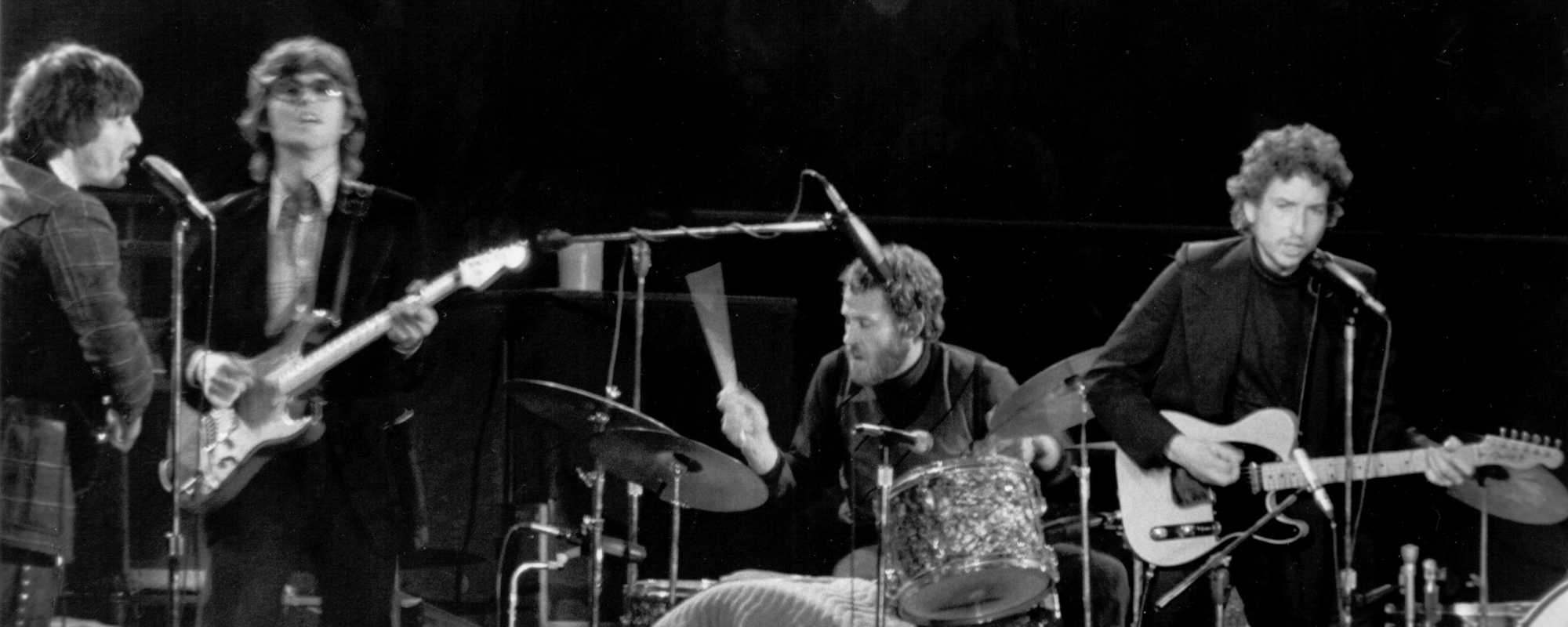Singer/songwriter and multi-instrumentalist John Driskell Hopkins is likely best known for his time with the Zac Brown Band. In recent years, though, he has become more than a musician. He is an advocate for amyotrophic lateral sclerosis (ALS) research. This new role came after he received an ALS diagnosis in December 2021. Today (May 12), he released the solo track “I Love You Forever.” In the song, he perfectly captures the love a parent has for their children. However, his desperation to be sure they know how he feels gives the song a depth that proves both inspirational and heartbreaking.
Videos by American Songwriter
Hop has been fighting ALS tooth and nail since he received his diagnosis. He continues to record and tour with the Zac Brown Band, operates the Hop on a Cure Foundation, and writes and records solo tracks like the one below. Fortunately, he had to slow down for a moment to take an IV medication. This gave him time to sit down with American Songwriter to discuss the new track, living with ALS, and more.
[RELATED: Zac Brown Band’s John Driskell Hopkins Reveals ALS Diagnosis]
John Driskell Hopkins on Writing “I Love You Forever”
“I Love You Forever” is a new song for the rest of the world. However, John Driskell Hopkins has been working on it since he received his ALS diagnosis.
“It’s hard to explain that song without explaining the day I was diagnosed with ALS. It was December 22, three days before Christmas,” Hopkins recalls. “We had plans to go to Calloway Gardens. It’s something we do every year. We go see their delightfully hokey and incredibly satisfying Fantasy in Lights. We do it every year. That’s where Jennifer and I were married. We almost canceled, but I said, ‘This is a lot to take in and we’re not going to talk to the kids about it yet,’” he adds.
Hopkins and his family went through with their plans for the evening and tried to have a good time. However, the bad news haunted him and his wife. That night, he lay awake in his bed, trying to find the words to share his diagnosis with his kids. “The only thing I could come up with was I love you forever,” Hopkins recalls.
“The sentiment when facing a terminal diagnosis is I’m not going to have the time to tell them all of the things that I had planned to tell them over the next 30 years,” Hopkins explains. “To sum it up, if they ever needed to hear anything from me, it’s I love you forever, even if I’m gone. The inspiration for the song was sheer desperation to communicate to my family that which was most important.”
Hop on Why He Waited to Release the Song
“When we came up with the finished product, Clay [Cook] and I were thinking about who should sing it,” recalls John Driskell Hopkins. “I think it took longer to put it out because we kept looking for the opportunity or the idea that someone bigger should sing it, a star, a Disney movie,” he explains. “The way these things go, we decided we were super proud of our work. We felt that the world should hear this song, and I have every hope that it is met with similar enthusiasm.”
“I Love You Forever” Doesn’t Sound Like Zac Brown Band
Those who only know of John Driskell Hopkins may be surprised to hear “I Love You Forever.” It sounds much more like a track one would find on a smooth crooner album from the 1970s than something like “Toes.”
”I grew up listening to pop music and songwriters like the Indigo Girls. And I grew up in musical theatre, I have a theatre degree, and I’m a sucker for Disney movies and just big, triumphant, over-the-top melodies like that,” he explains. “People who know of me know that I’m in the Zac Brown Band. But people who know me and listened to the albums I had before the Zac Brown Band know that isn’t my core sound. I like to call my genre arena folk. It’s acoustic guitar-driven fireworks,” he adds.
John Driskell Hopkins on His Priorities
“One of the cruelest parts of ALS is you’re given an indeterminate amount of time. ALS patients usually live two to five years after diagnosis, and I’m three and a half years in. I’ve known people who were diagnosed and were gone 20 months later. So, my progression is very slow, which means that I want to do so many things. But the catch-22 is that it takes me so much longer to do anything,” he explains.
Last night saw Hopkins home for one night after spending ten days on the road. Later today, he’ll hit the road and be gone for another week. To celebrate the time he had at home with his family, he ordered dinner from their favorite local restaurant. His 16-year-old daughter went to pick up the food. In the meantime, he was ordering medication online. When dinner arrived, he was still working on the order.
“It was going to take me 10 minutes, and then I would join the family for dinner. It took me 10 minutes, and then I walked into the kitchen, and everyone was gone. All the girls had eaten in 10 minutes and had gone back to their rooms, or gone to study, or gone on about their night. I’ve been gone for ten days, and I missed dinner with them because I’m so slow,” he says.
“That kind of thing haunts me because I have to prioritize getting my ducks in a row with my medications or whatever I’m doing,” explains Hopkins. “But I also have to prioritize spending time with my precious family in the moments that I have. I also have to soak in every bit of creative output, input, or throughput that I can and create as many songs as I can, and perform for as many people as I can. But don’t miss dinner with the family.”
Featured Image by R. Diamond/Getty Images













Leave a Reply
Only members can comment. Become a member. Already a member? Log in.